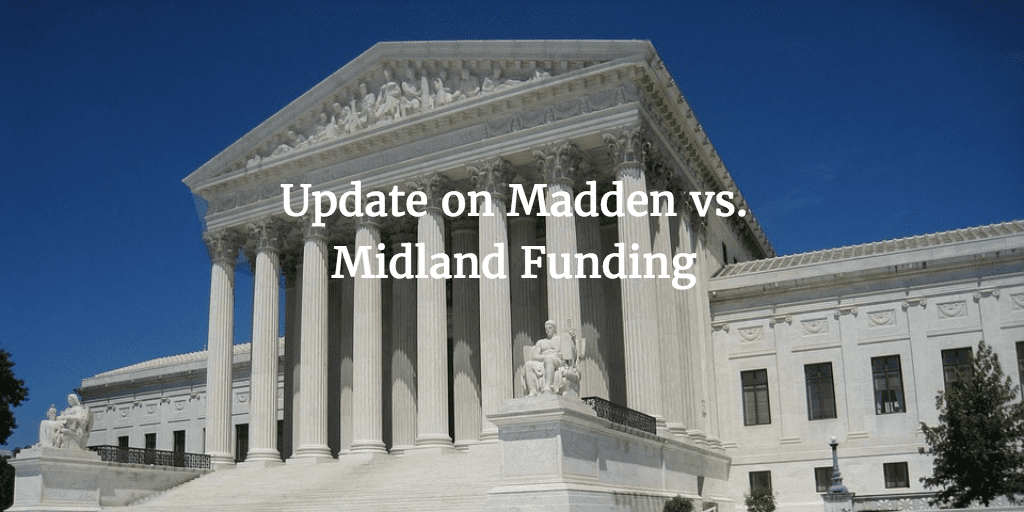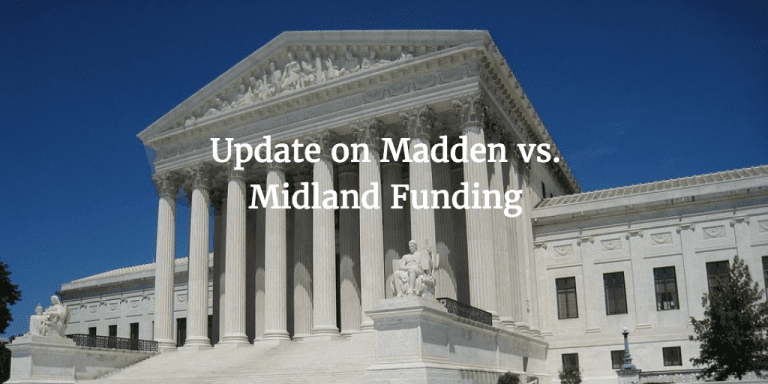
We have covered the Madden vs. Midland Funding case in depth over the last year. It is centered around exporting interest rates in a case unrelated to marketplace lending, but the industry has been concerned that the results of the case could create a precedent that would affect the marketplace lending industry. This week we heard an update on the case which is mostly positive for the marketplace lending industry, but still leaves some unanswered questions.
The federal government informed the U.S. Supreme Court that the Second Circuit made the wrong decision and that state usury caps should not be enforceable when a bank sells debt. However, the question still remains whether the Supreme Court will take up the case, which is needed to officially overturn the Second Circuit’s decision. The Solicitor General, while stating the second circuit made the wrong decision also argued that the US Supreme Court should not take on the case because there was no split among circuit courts.
The Solicitor General summarizes their position:
The court of appeals erred in holding that state usury laws may validly prohibit a national bank’s assignee from enforcing the interest–rate term of a debt agreement that was valid under the law of the State in which the national bank is located. But there is no circuit split on the question presented; the parties did not present key aspects of the preemption analysis to the courts below; and petitioners may still prevail on remand despite the error in the court of appeals’ interlocutory decision. For all of those reasons, further review is not warranted.
Brian Korn, a Capital Markets Partner at the law firm Manatt, Phelps & Phillips, LLP and marketplace lending expert had this to say about the recent news:
This is a great brief for the marketplace lending industry. Although many would have liked to see the Supreme Court hear the case to give closure, the absolute dressing down of the process is confirmation for many involved in the industry that the Second Circuit’s opinion was erroneous. The Solicitor General unequivocally backs the ‘valid when made’ doctrine and declares that selling loans that are originated by a national bank are fundamental to the powers of a national bank under the National Bank Act. The SG feels that the case does not need further attention from the Court since (i) the briefs fail to properly cite the law in order for the Court to rule on the preemption argument, (ii) Midland will most likely prevail on remand either under the choice of law issue where both parties elected Delaware law to govern (which would allow for the Madden credit card rate), and (iii) under the New York state law the valid-when made doctrine exists and supersedes the usury laws.
Given the news it seems unlikely that the US Supreme Court will take on the case. Despite the ruling from the Second Circuit it doesn’t look like Madden will be able enforce the court’s decision based on what Brian Korn has outlined above. There will certainly be people who continue to have concerns about the case, but from my perspective this is good news for the industry despite the fact that we won’t get closure on the case just yet.


